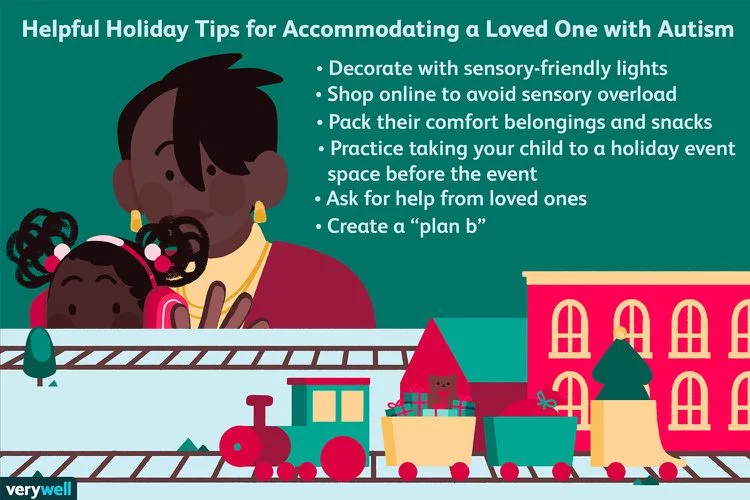Article excerpt from Verywell Health
Holidays can be tough for children with autism. They may also be tough for their parents, guardians, or siblings. But the good news is that for every problem you might encounter, there are real-world solutions you can put in place to make the season bright!

Sensory Issues
Many people with autism have strong negative reactions to bright lights, loud noises, strong flavors, and smells. The holidays can sometimes feel like a sensory assault! When you’re facing the probability of a sensory meltdown, here are some strategies to try:
1. Avoid sensory challenges.
Do you really need to take the child in your care shopping with you, or could you possibly shop online, find a sitter, or ask someone else to pick up some items for you? These days, Internet options are just as good as in-person shopping; you can even get the grocery store to deliver.
2. Choose sensory-friendly options.
While flashing lights on a Christmas tree might overwhelm a child with autism, gently changing lights might charm them. Luckily, modern LED Christmas lights offer multiple ways to enjoy the twinkling. You can also, in many cities, find “sensory friendly” Santas, shops, and other holiday offerings. If these aren’t available in your hometown, consider having a small, low-key “visit from Santa” in your own home.
3. Have a plan B in case of sensory overload.
Some children can handle crowds and noise, but only for a limited amount of time. If you decide to take an autistic child to a big holiday event, be sure to have an alternate “plan B” just in case it turns out to be too much for them. If it’s just the two of you, you can simply leave. If other siblings or friends are coming along, know in advance which adult will take the autistic child in your care out of the difficult situation while others can stay and enjoy the experience. To avoid this, it is best to plan events in ways that limit the chances of sensory overload occurring.






